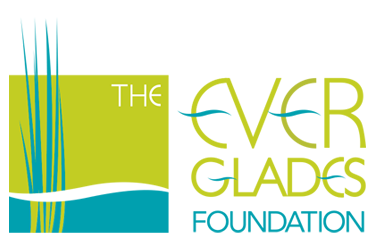 The Everglades Foundation has partnered with the FAU Center for Environmental Studies to develop
Everglades in a Changing Climate,
an engaging, hands-on curriculum for middle and high school students. Through a series of interactive lessons, students investigate how Earth’s systems interact in the unique environment of the Everglades and explore the science behind climate change. They experiment with probability to distinguish weather from climate, model the greenhouse effect, and trace carbon as it cycles through ecosystems. Building on this foundation, students examine real-world data to understand the impacts of sea-level rise and tides on South Florida communities and ecosystems. Finally, they consider practical solutions and community actions that can help address the challenges of a changing climate.
The Everglades Foundation has partnered with the FAU Center for Environmental Studies to develop
Everglades in a Changing Climate,
an engaging, hands-on curriculum for middle and high school students. Through a series of interactive lessons, students investigate how Earth’s systems interact in the unique environment of the Everglades and explore the science behind climate change. They experiment with probability to distinguish weather from climate, model the greenhouse effect, and trace carbon as it cycles through ecosystems. Building on this foundation, students examine real-world data to understand the impacts of sea-level rise and tides on South Florida communities and ecosystems. Finally, they consider practical solutions and community actions that can help address the challenges of a changing climate.
Explore the lessons below to learn more about each topic.
Students will understand the difference between weather and climate through a hands‑on dice activity. By rolling both normal and loaded dice, they will compare the probability of the occurrence of “normal” temperatures versus “warmer‑than‑normal” temperatures. Then, students will discuss how these temperature changes can impact flora and fauna in the Everglades and make observations on how different emissions scenarios impact the Everglades and people of South Florida.
Students will learn about the natural and amplified greenhouse effect. Through a hands-on activity, they will examine the various greenhouse gases in our atmosphere and how human activities have contributed to their increase. Students will hypothesize about the effect of increasing carbon dioxide (CO2) on air temperature in a closed environment and then conduct an experiment to test and analyze their predictions. Students will also create and analyze a line graph showing temperature changes over time in three different scenarios.
Students will explore the carbon cycle through a hands-on role-playing activity, where they act as carbon atoms traveling between different reservoirs in the Everglades to help them understand how carbon moves through ecosystems.
Students will learn about the science behind sea-level rise and that it is a measurable phenomenon that affects not only coastal areas but also inland communities. By using NOAA’s Sea Level Rise Viewer, students will understand how a tool such as this can help scientists, city planners, and communities understand risks, and prepare for the future so that we can make informed decisions.
Students will learn about the causes of tides and examine authentic tide gauge data that shows how King Tides and other high tide events are impacting our coastal communities.
Students will learn how communities and citizens are addressing the impacts of King Tide. Students will examine various texts and websites to learn about the impacts of sea-level rise on the Everglades and the people in South Florida. They will also learn about the solutions for each impact. Using a graphic organizer to identify key concepts, they will design a poster for each impact and potential solutions.